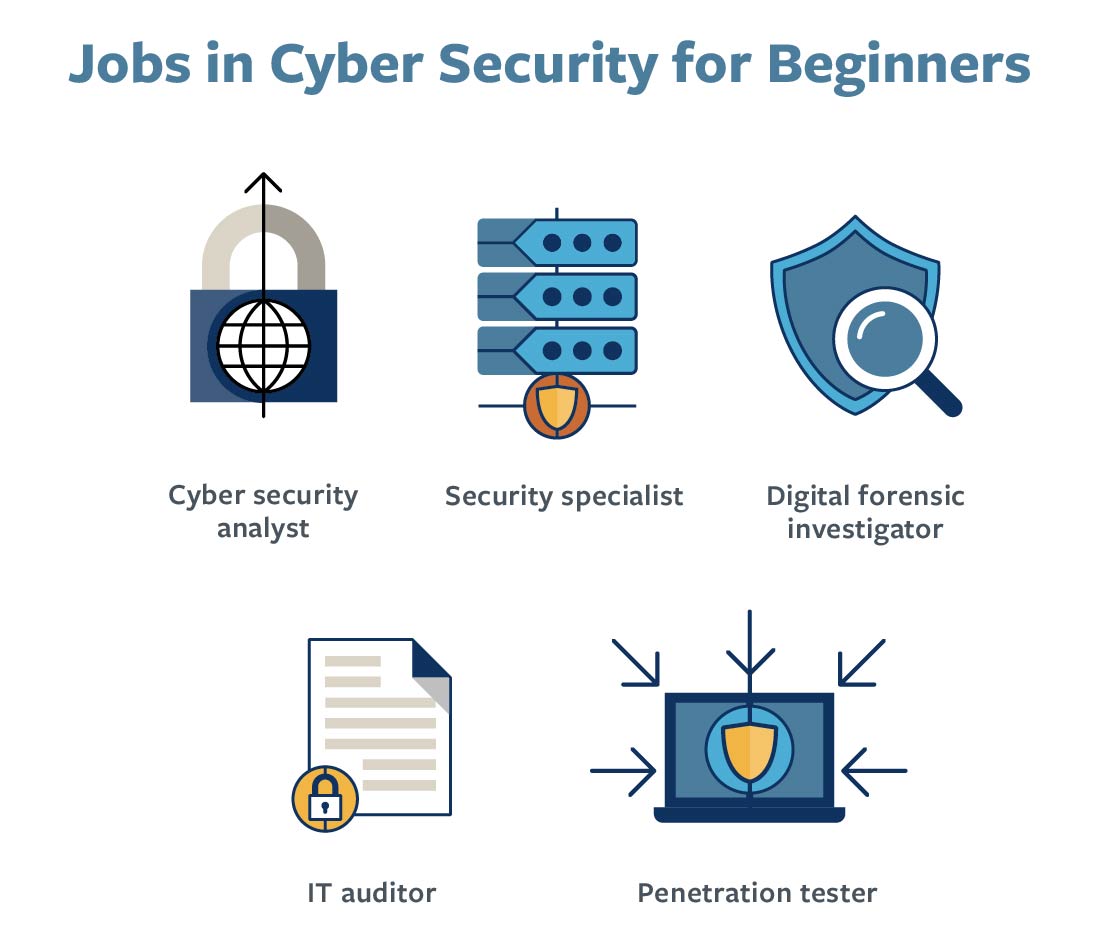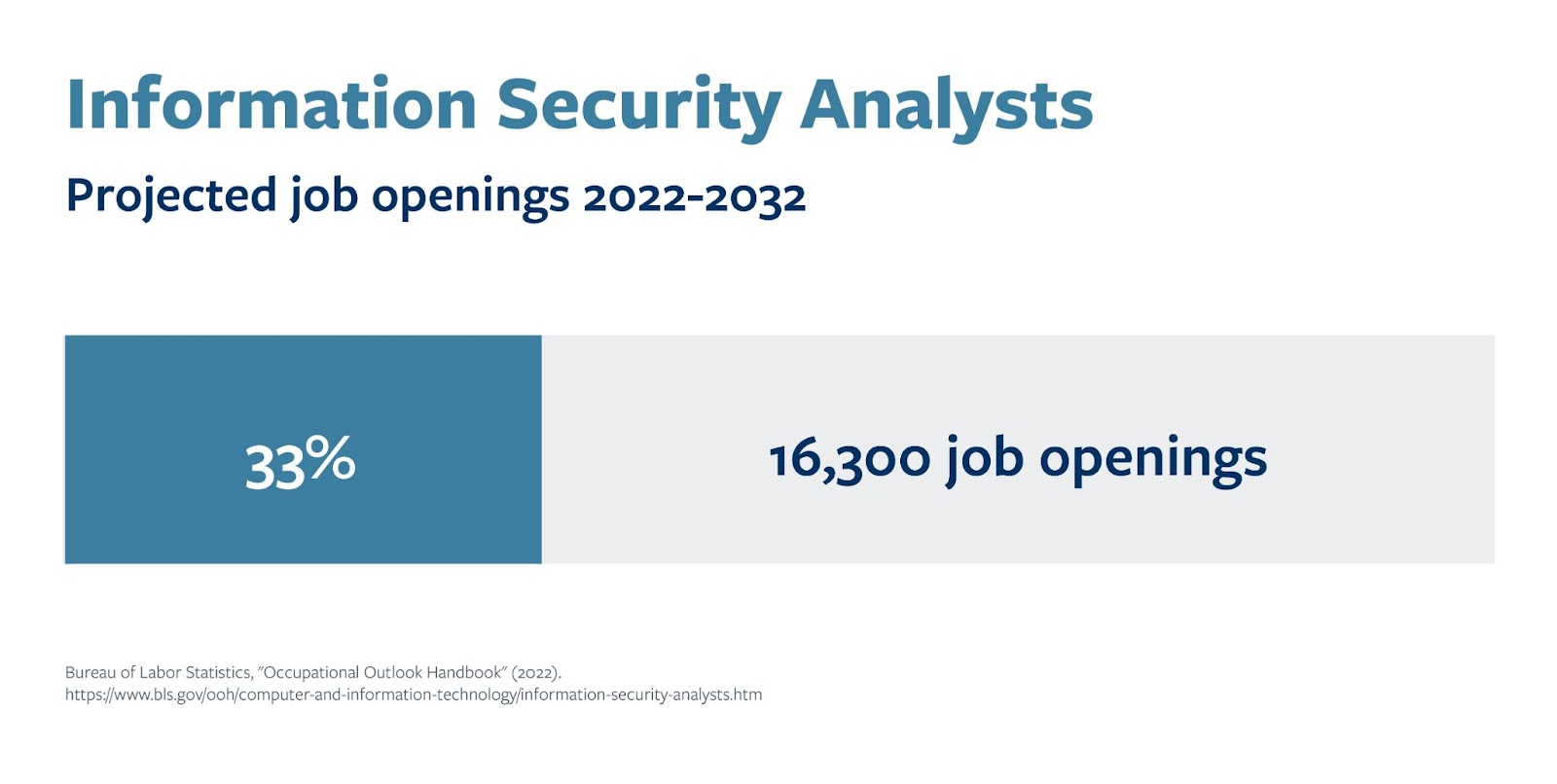Cyber security involves protecting computer systems, networks and data from unauthorized access, damage and theft –– preventing the disruption of digital activities and data access –– while also protecting user assets and privacy. Given the ever-escalating cyber criminal attacks across industries such as utilities, healthcare, finance, as well as the federal government, it’s not surprising that cyber professionals are in high demand. In fact, the demand for entry-level cyber security jobs is projected to increase 33 percent during the coming decade, according to The U.S. Bureau of Labor Statistics (BLS).
Since cyber security attacks can happen anywhere, at any time, employers hiring for cyber security jobs range from large corporations to small business owners across a variety of industries. Interested in switching to a cyber security career? Read on to learn more about the types of entry-level cyber security jobs that may be right for you.
 Live Chat
Live Chat


